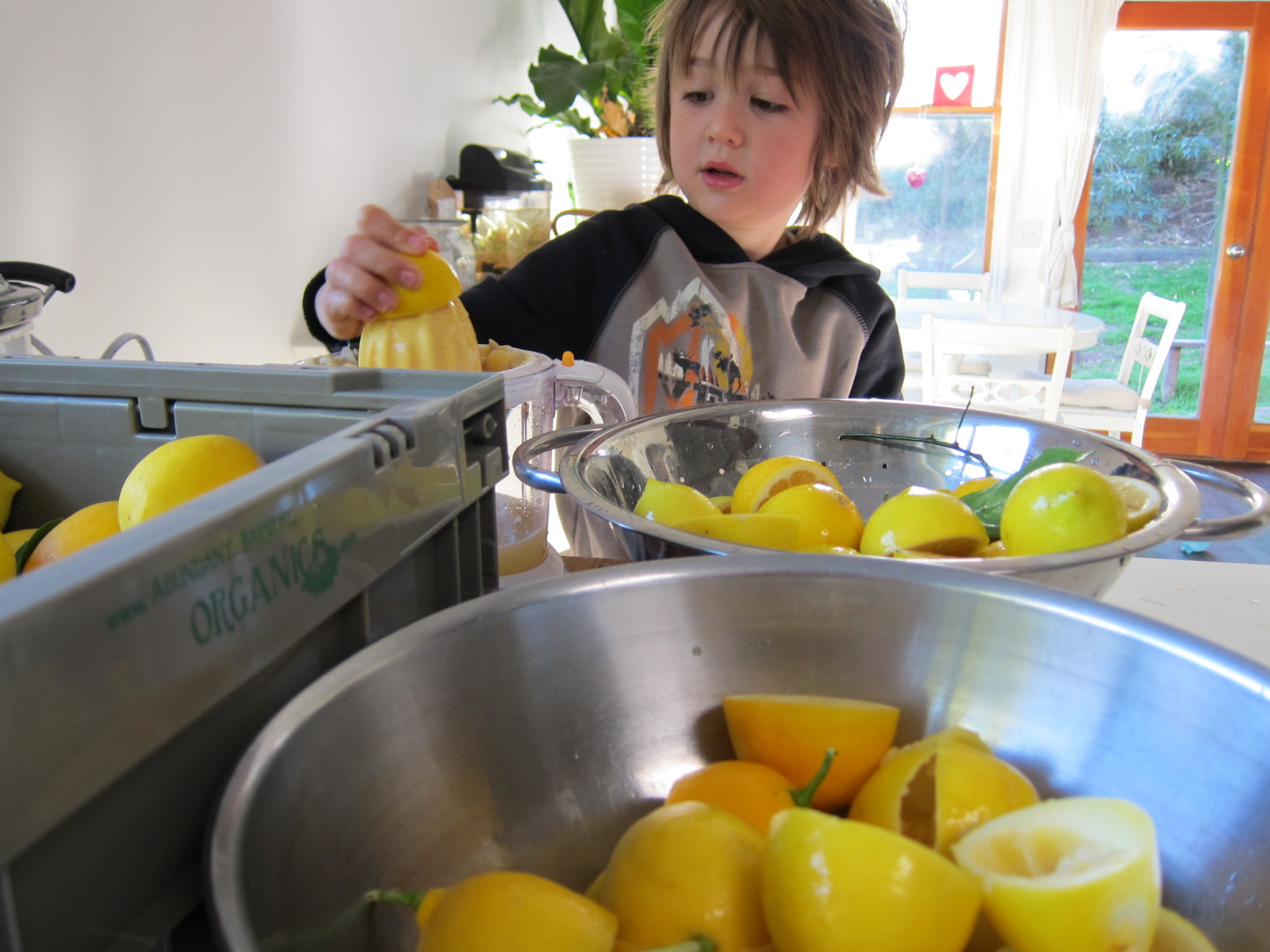
Soaking grains, drying nuts, fermenting veggies – so much of real food takes time to prepare – not necessarily hands-on time, but time nonetheless.
So here are a few of my favorite shortcuts in a real food kitchen for saving myself some precious minutes that add up throughout the week.
1 – Prepare large batches
When it comes to food prep, the biggest consumer of time in my kitchen is the clean up. And as much as I love cooking and preparing food, I do NOT love cleaning up the mess I leave in my wake.
So, one solution (aside from a live in maid or disposable kitchen ware) is to prepare food in large quantities and save the extras for later.
When I make beans or grains by first soaking and then slow-cooking in bone broth, I freeze a few batches for quick meals later. If I'm fermenting sauerkraut, I get out my giant canning pot to use as my mixing bowl and make at least a gallon. I make a big batch of cultured mayo every month or so, and at the beginning of the week, I use it to make a container of tuna salad for lunches.
2 – Love your slow cooker
Unless you have nothing better to do than watch your pots boil on the stove, your slow cooker should be an omnipresent member of the family – always bubbling away full of a promise of nourishment while you are busy getting on with life.
And what's better than a slow cooker? Two slow cookers!
Get a second crock pot on your counter – I have one on the go most of the week making bone broth, and the other is dedicated to meals – soups, stews, slow cooked meats, etc.
Click here for the slow cooker I use.
3 – Work your food processor
Aside from clean-up, the second most time consuming kitchen task is undoubtedly the chopping. That is, unless you have a food processor do it for you.
On a big cooking day, my well-loved machine goes from chopping veggies to shredding cheese, pureeing cashews into nut butter or roasted cauliflower into mash to emulsifying sauces or even homemade body lotion. An indispensable kitchen tool for anyone who wants to save some time.
Click here for my favorite food processor.
4 – Make a real food friend who wants to collaborate
I treasure my weekly kitchen play dates where us mamas chat, cook, and take turns checking on the kids. We get more done in a half day than I often can prepare in a week on my own.
Plus with a partner, you're more likely to be motivated to tackle those challenging recipes you've been putting off or quadruple a batch of ketchup because you'll have help with prep and clean up.
Another option is kitchen trades – If you love making kombucha and a friend loves making salsa, you just may have a match made in heaven.
5 – Put your kids to work
Children love feeling useful, and they're more likely to eat the food you're cooking if they have a hand in preparing it.
Find tasks that your little one can get excited about – my five year old currently loves juicing citrus (that's him above!) and taking scraps to feed the neighbor's chickens.
Properly planned, your offspring will be entertained, and your workload will be lighter. (P.S. Finding fun tasks also works for my hubby too).
6 – If you don't love it, don't do it
While this may seem like a no-brainer, I spent months tending to the daily chores of kefir grains before I realized that my family's interest in consuming milk kefir and kefir sodas did not outweigh the effort.
Now I make yogurt instead of milk kefir and slower fermented drinks like kombucha and whey sodas. Not only does my family prefer the taste of these ferments, but the work is much less demanding. Win-win!
7 – Do a little each day
While I am notorious for my trance-like day-long cook-a-thons, I find that the best method to consistently having real food for my family is to spend a small window of time each day (somewhere between 10-30 minutes) keeping the ball rolling.
This takes just a bit of thought and planning: “Do I need to soak my sprouted flour to make crackers tomorrow? Is the meat defrosted/marinating for the crockpot short ribs I am planning? The milk is sour – I think I'll set it out to make whey.”
If it helps, jot down a list. But with practice, your kitchen (with you at the helm) will find a humming rhythm of its own.
What are your favorite real food kitchen shortcuts?



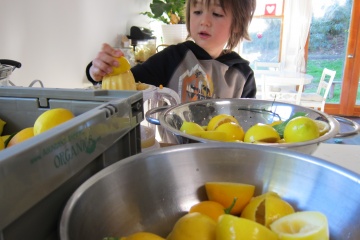

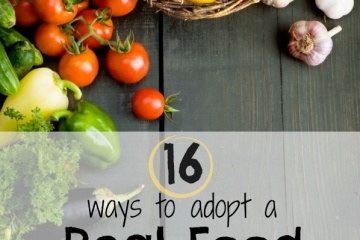
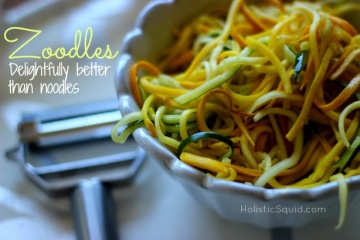


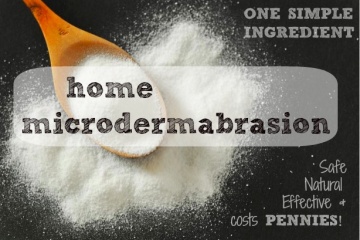

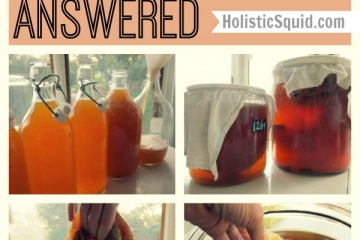
Big batches and planned leftovers are the only thing that make it all manageable for me.
Even for non-Real food kitchens, the habit of continuous production is a time, money, and nutrition saver. Main stream housewifey publications have pushed the idea of 30 (20, 10) minute meals for decades. But feeding your family one meal at a time is an expensive, packaged product intensive method with serious consequences for the users health and the environment.
I love the cooking part but hate the cleanup so I’ve been working on clean-as-you-go so that when I’m done I’m truly done, without having to stand there another hour cleaning up the messes! Now that my kids are bigger I also utilize them for k.p. duty as much as possible.
I’m with Lee, I try to clean as I go, as well. Partly because I have very little counter space, and partly because I go crazy when I have an hour’s worth of dishes to do after being on my feet cooking for three. Great post!
I remember living in Ukraine and people would cook large batches and exchange with neighbors for other foods. That way there was always variety and no waste. What ever was close to spoiling was always made in to a stew.
I forgot to ask you which crockpot you own? I am always worried about buying one because of the lead. But I am tired of cooking for hours at a time with one kid on the hip. I would rather play with the kids and leave the pot to cook on it’s own.
Thanks!
Hi Helen – I use this one from Hamilton Beach . According to the maker, it is lead-free.
. According to the maker, it is lead-free.
i agree, great post, being time efficient is a skill & requires practice!
I would also like to know which food processor you find best for your kitchen needs?
i’m looking for one at the moment & it’s really the size that I’m unsure about.
thanks,
Thanks Denny. I have a Cuisinart food processor like
this one
. IMO, the bigger the better. I especially like the larger feed tube – makes easier work of shredding and slicing.How could any crockpot NOT be lead free? Now you have me worried. Are there some being sold in the US with lead in them? I just bought a new one. Crockpot brand. Do you know if they are safe?
Hi Kaymer – Unfortunately, all I know is what I’ve read – and the information is inconsistent. Personally I think that if the enamel on your slow cooker is intact, it should be safe. I found this post reassuring… perhaps it will help you too: http://www.terminalverbosity.com/2009/11/09/the-skinny-on-lead-in-crock-pots-it-may-surprise-you/.
Okay, I’m hoping you can answer this question for me, as I’ve been trying to find out for months now with no luck. When making huge batches of stuff like sauerkraut or lemon juice, CAN YOU CAN THEM??? Or does that mess up the health benefits somehow? And if it does mess with the nutritional value, to what degree, and when is it worth it? My family makes barely $1400 each month for a family of 3, and while we live very simply, we always squeak in barely under the limit of our cash each month after all of our bills, etc. I have been working hard to try to cook at least 80% of our meals from scratch (vs prepared food), and now that we’re doing that consistently, I want to start switching out foods for more healthy ingredients, and start learning to make some of the stuff you blog about myself (yogurt, etc). We live in northern Illinois, and while we’re in an agricultural area, a LOT of it is Monsanto (yep, in their backyard, oh goody), and farmers markets are sparser than I could hope (or expected, when we moved here from Wyoming and Montana – we had better options there, strangely). My sister-in-law and I are planning to go to several pick-your-own produce farms this summer and fall, and we’re planning to go in together for a canning system, so we don’t have to buy canned goods (or many, anyway) anymore. But that brings me back to my original question – can I can sauerkraut and berries and various fermented or pickled veggies and have them still be a good healthy option for my family? We have limited space, limited funds, and I want to make the best of it!
Hi Alena – I believe you can can them, but they will lose their probiotic benefits. Still, canning is a great way to preserve food for times when you can’t source or afford fresh.
My time saver is to wash all my veg on Sunday. It takes a couple hours to wash, scrub and dry all the fruits and veg that I am going to use during the week. I prep it all on Sunday and making a salad only takes a few mins during the week.
This is a great post. A few things that really helped me was doing meal planning so I knew what I was preparing every week based on what meat I have in the freezer and what I got in my produce farm box. I also plan for leftovers and on the day we are having leftovers, I make my real food items- yogurt, kombucha, kraut, etc.